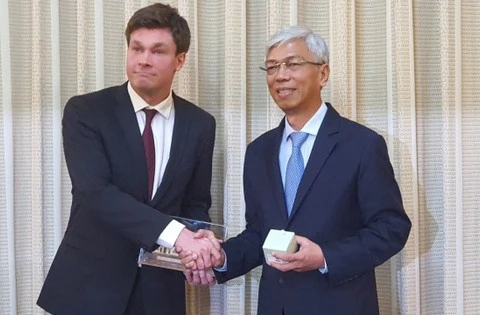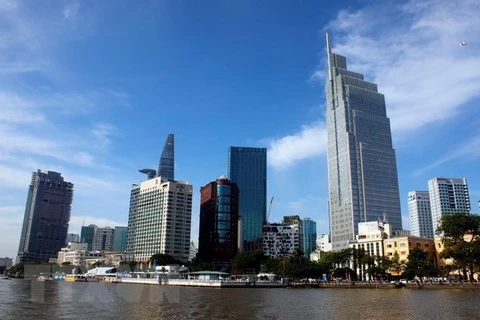HCM City (VNA) – Ho Chi Minh City aims to develop sustainable urban agricultural production with high technologies to be applied in cultivation on at least 70% of its agricultural land by 2030, said the director of the city’s Department of Agriculture and Rural Development.
The city’s agricultural land area continues shrinking during the rapid urbanisation process. In the 2010-2015 period, the city lost 700 ha of agricultural land each year. In the 2015-2020 period, it lost 1,000 ha every year.
In 2015, a ha of agricultural land generated 375 million VND (15,300 USD) each year. Between 2015 and 2020, each hectare generated 500 million VND. The city strives to raise the agricultural production value to 900 million VND -1 billion VND per ha per year by 2030.
According to experts, the city’s achievements in agriculture shows that it has been on the right track in promoting high-tech agriculture.
Dr. Pham Dinh Dung, head of the Management Board of the Hi-tech Agriculture Park of HCM City (AHTP) said that the city has set a strategic vision for this field based on applying science and technology to both agricultural production and eco-tourism development.
In recent years, Ho Chi Minh City has focused on building facilities and establishing pioneering units in the field of smart agriculture. Some of such facilities are the High-tech Agricultural Park, the Biotechnology Centre and the Trai Trinh Demonstration and Experimentation of High-tech Dairy Farming. The municipal People’s Committee also approved a programme on developing plant and animal varieties and hi-tech agriculture for 2020-2030, with a focus on research and development.
However, difficulties and challenges remain, particularly in human resources and linkage between retailers and suppliers. The city lacks big value chains for key commodities and products.
Regulations and requirements on agricultural product quality standards, origin, and technical barriers in export markets have created great challenges and higher competitive pressure for local agriculture.
Meanwhile, policy systems and solutions for agricultural development in general and hi-tech agriculture in particular are still inadequate and have not been as effective as expected.
Farmers have difficulties in accessing credit support, investing in mechanisation, and developing a cooperative economy.
Experts urged a clear and adequate legal framework for the management and development of hi-tech agriculture, more investment in human resources training and incentives for R&D and public-private partnership in the field./.

























